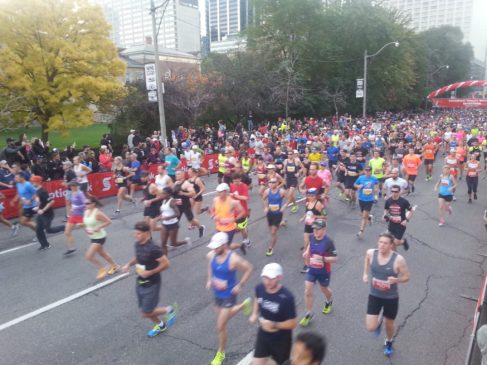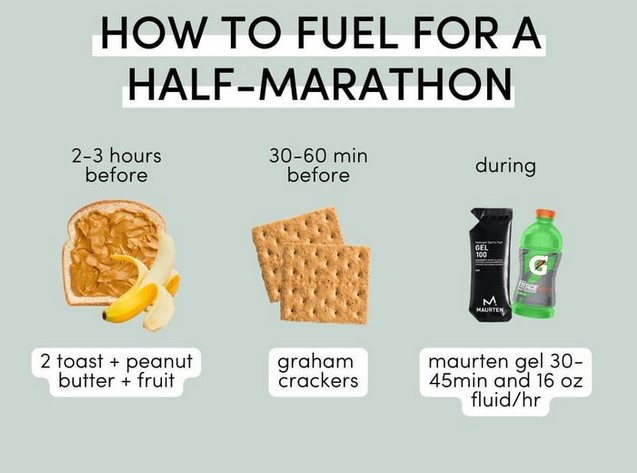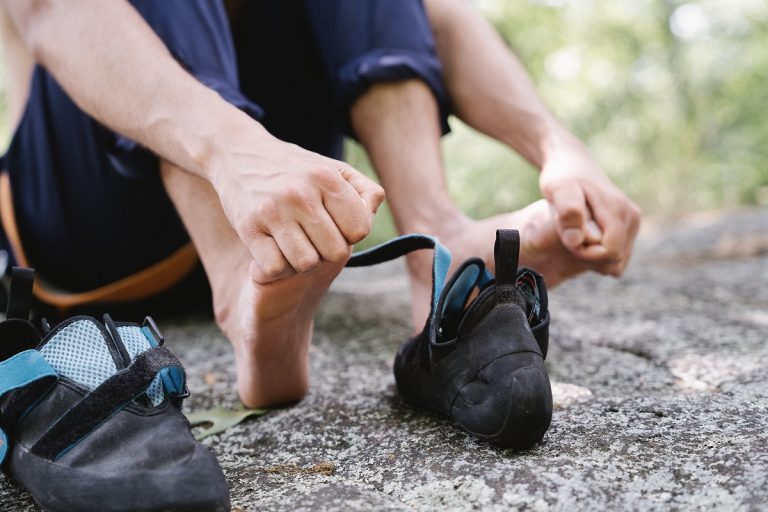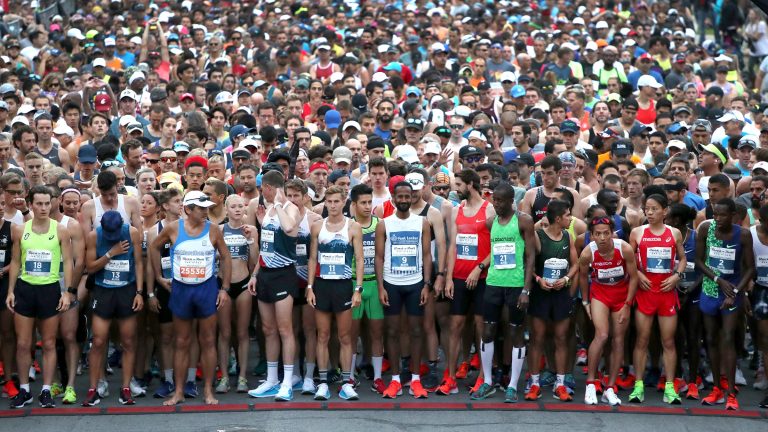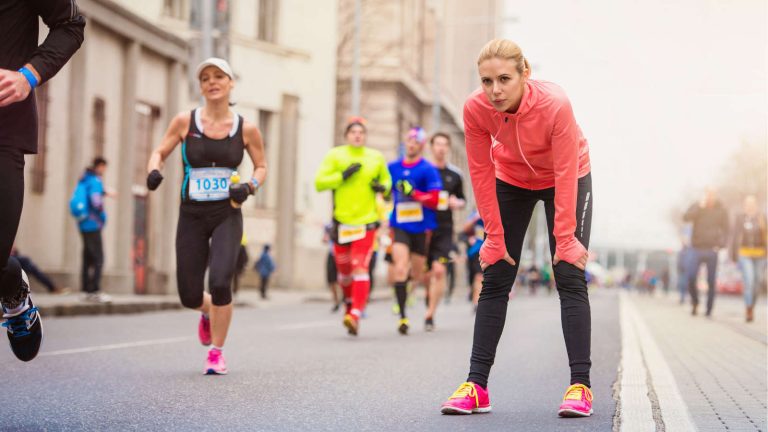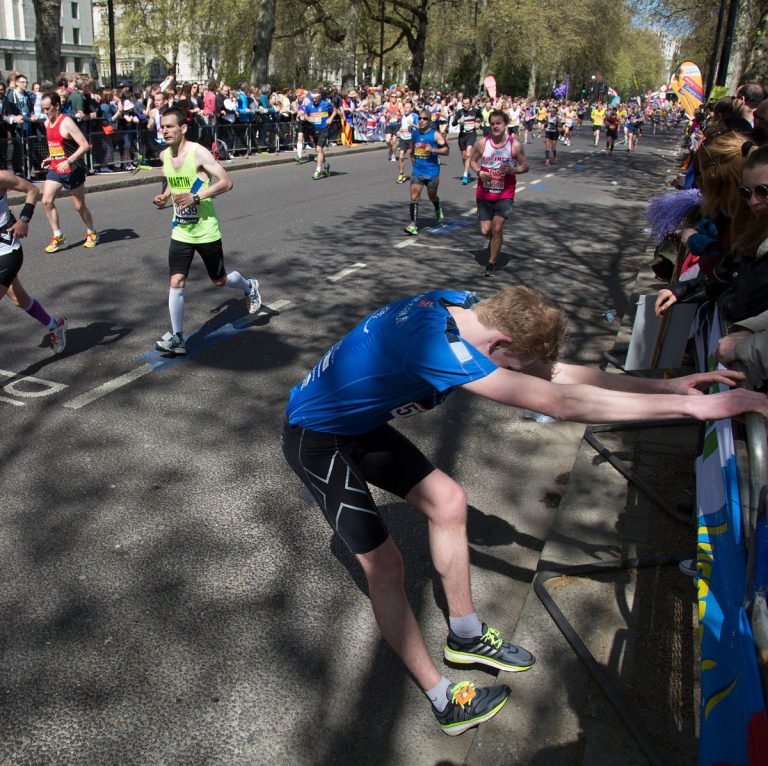Why Can’t I Sleep After Running a Marathon
After running a marathon, it may be difficult to sleep due to increased adrenaline and physical exhaustion. Engaging in vigorous physical activity like running a marathon can have a significant impact on your body and mind.
While the sense of accomplishment and exhilaration can be overwhelming, it may also make it challenging to fall asleep afterward. This is because intense exercise increases the level of adrenaline in your body, making it difficult for your mind and body to relax and settle down for sleep.
Additionally, your muscles may feel sore and fatigued, which can cause discomfort and make it harder to find a comfortable sleeping position. Understanding these factors can help you find ways to improve your sleep quality after running a marathon and allow your body to recover effectively.
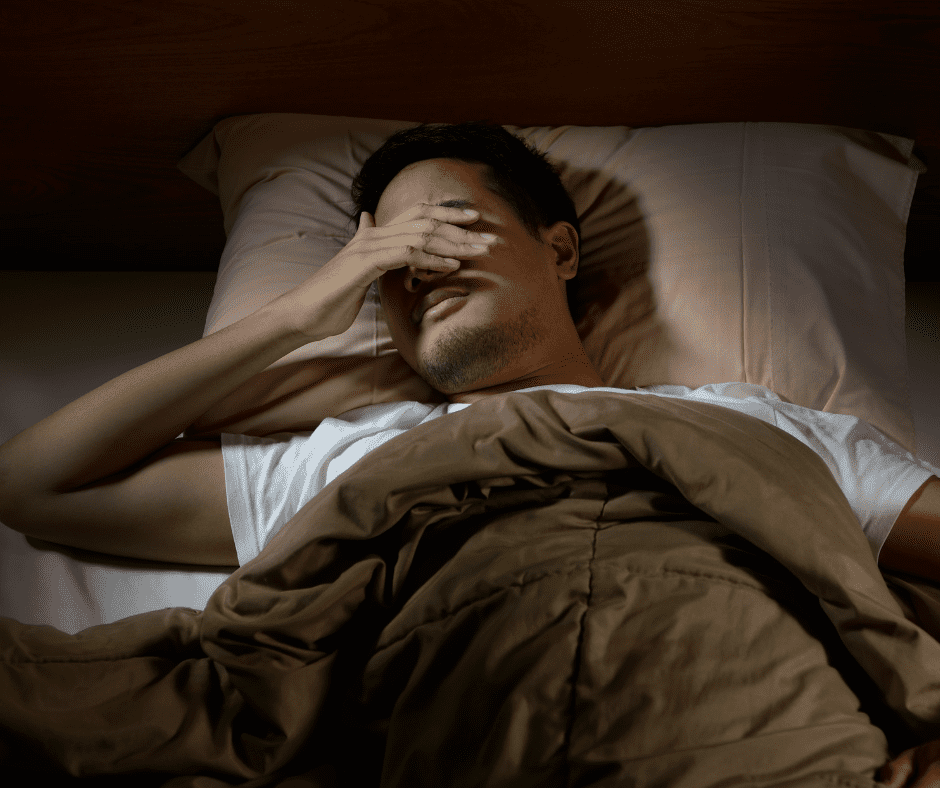
Credit: blog.coachparry.com
Impact Of Marathon Running On Sleep
Marathon running can disrupt sleep patterns due to increased adrenaline levels and physical exhaustion post-event. Recovery techniques and relaxation strategies can aid in improving sleep quality after running a marathon. Proper hydration and a balanced diet also play a crucial role in promoting restful sleep.
Impact of Marathon Running on Sleep Running a marathon is an incredible physical achievement that can leave you feeling both accomplished and physically exhausted. However, while the sense of accomplishment is undeniable, the impact of marathon running on sleep can be profound. Understanding the reasons behind your difficulty in sleeping after completing a marathon is important for your post-race recovery.Physical Exhaustion And Sleep Disruption
After a marathon, your body is physically exhausted. The extreme exertion and strain placed on your muscles and cardiovascular system can lead to a state of extreme fatigue. This physical exhaustion can lead to disrupted sleep patterns and difficulty falling asleep. The body’s need for recovery and repair post-marathon can result in a disruption of the normal sleep cycle, leaving you feeling restless and unable to achieve the restorative sleep needed for recovery.Elevated Stress Hormones And Sleep Patterns
The physical demands of a marathon can lead to elevated stress hormone levels. The combination of intense physical exertion, psychological stress, and the release of cortisol and adrenaline can impact your sleep patterns. Elevated stress hormones can lead to heightened alertness and difficulty in achieving deep, restorative sleep. Additionally, the physical stress of marathon running can lead to increased nighttime awakenings, further disrupting the natural sleep cycle. In conclusion, the impact of marathon running on sleep is multifaceted, involving both physical exhaustion and the influence of stress hormones on sleep patterns. Understanding these factors can help you implement strategies to improve your post-marathon sleep quality and overall recovery.
Credit: www.olyrun.com
Body’s Recovery Process After A Marathon
The body’s recovery process after running a marathon is essential to ensure optimal performance and prevent injuries. However, many runners often find it difficult to sleep after completing a marathon. This can be attributed to various factors that affect the body’s ability to rest and recover. In this article, we will explore the impact of muscle repair and growth, as well as inflammation on sleep disturbances post-marathon.
Muscle Repair And Growth
After pushing your body to its limits during a marathon, your muscles undergo an intense repair and growth process. Running a marathon places significant stress on the muscles, resulting in microscopic tears and damage. To repair these tears, your body initiates a natural healing process during sleep. However, the intense physical exertion of a marathon can disrupt this process, leading to difficulties in falling and staying asleep.
During sleep, the body releases human growth hormone (HGH), which is vital for muscle repair and growth. This hormone promotes the synthesis of new proteins and collagen, crucial components for rebuilding muscle fibers. If you’re having trouble sleeping after a marathon, it may be due to the elevated levels of stress hormones, such as cortisol, which inhibit the production of HGH. As a result, the body’s natural muscle recovery process is impeded, making it difficult to find restful slumber.
Inflammation And Sleep Disturbances
Another factor that can contribute to sleep disturbances after a marathon is inflammation. The intense physical exercise during a marathon leads to an increase in inflammation throughout the body. Inflammation is a natural response by the immune system to help repair damaged tissues and prevent infection. However, excessive inflammation can disrupt the body’s sleep-wake cycle, making it challenging to fall asleep or stay asleep throughout the night.
Furthermore, the release of cytokines, chemical messengers involved in inflammation, can cause discomfort and pain, which can further disrupt sleep. The body’s heightened inflammatory response post-marathon may lead to an overactive immune system, resulting in sleep disturbances.
While it is normal to experience sleep disturbances after running a marathon, understanding the body’s recovery process can help minimize these issues. Prioritizing adequate rest and sleep, managing inflammation through proper nutrition and recovery techniques, and adopting relaxation techniques may help improve post-marathon sleep quality. It is crucial to listen to your body and give it the time it needs to recover fully before returning to regular training and racing.
Nutritional Factors Affecting Post-marathon Sleep
Getting a good night’s sleep after completing a marathon is crucial for recovery and allowing your body to repair itself. However, many runners find themselves struggling to fall asleep or stay asleep after the race. Several nutritional factors can contribute to this sleep disruption, including hydration levels and post-race nutrition choices. Understanding how these factors affect your sleep quality can help you optimize your recovery and improve your post-marathon restfulness.
Hydration Levels And Restfulness
Adequate hydration is essential for optimal performance during a marathon, but did you know it can also impact your sleep quality afterward? Dehydration can lead to increased levels of cortisol, a stress hormone that can interfere with your ability to fall asleep and stay asleep. Staying hydrated throughout the race and especially in the hours following it can help regulate your cortisol levels and promote restfulness.
Not only does hydration impact hormone levels, but it also affects your body’s ability to cool down. As you exercise, your body temperature rises, and sweating helps regulate it. However, if you are dehydrated, your body may struggle to effectively cool down after the race, leaving you feeling hot and uncomfortable when trying to sleep. By hydrating properly and replenishing electrolytes lost during the race, you can improve your body’s ability to regulate its temperature and enhance your post-marathon sleep quality.
Effects Of Post-race Nutrition On Sleep Quality
What you eat after crossing the finish line can have a significant impact on your ability to sleep afterward. Fueling your body with the right nutrients following a marathon can promote restfulness and aid in the recovery process.
Eating a balanced meal that includes carbohydrates, protein, and healthy fats can help replenish glycogen stores, repair muscle tissue, and reduce inflammation, all of which contribute to improved sleep quality. Foods rich in tryptophan, such as turkey, cheese, and nuts, can also be beneficial for sleep as they support the production of serotonin, a neurotransmitter that promotes relaxation and melatonin release.
Avoiding large or heavy meals close to bedtime is also essential. Overeating can cause discomfort and indigestion, making it difficult to fall asleep. Similarly, consuming too much caffeine or alcohol can disrupt your sleep patterns. While it may be tempting to celebrate your achievement with a few drinks, alcohol can interfere with the quality of your sleep and leave you feeling groggy the next day.
By making mindful choices about your post-race nutrition and focusing on hydrating properly, you can improve your sleep quality and support your body’s recovery after a marathon.
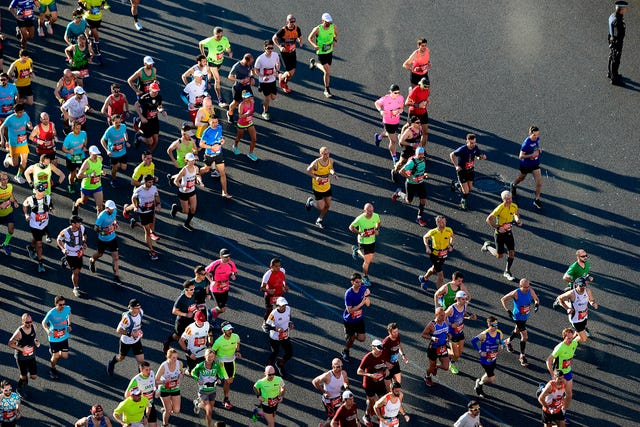
Credit: www.runnersworld.com
Psychological Aspects Of Sleep Post-marathon
Anxiety And Racing Thoughts
After completing a marathon, it is common to experience heightened levels of anxiety and racing thoughts. The intense physical exertion triggers a surge of adrenaline and cortisol in the body, which can leave runners feeling restless and anxious even after the race has ended. The mind may continuously revisit the challenges encountered during the marathon, leading to racing thoughts that disrupt the ability to fall asleep.
Mental Fatigue Impact On Sleep
The mental fatigue resulting from the intense focus and concentration needed to run a marathon can significantly impact sleep. The brain may struggle to unwind and recalibrate after the strenuous effort, leading to difficulty in settling into a restful sleep. The relentless mental exertion can keep the mind active, making it challenging to achieve the deep, rejuvenating sleep necessary for recovery.
Strategies To Improve Sleep Post-marathon
After completing a demanding marathon, sleep disturbances are common due to physical and mental exhaustion. Fortunately, incorporating specific strategies can help enhance your quality of sleep and promote recovery. Below are effective tactics to improve your post-marathon sleep:
Developing Relaxation Techniques
Practicing relaxation exercises like deep breathing or meditation can calm your mind and body, aiding in falling asleep after a marathon.
Establishing Pre-sleep Rituals And Environment
Creating a sleep-conducive environment by keeping your room cool and dark can promote better rest after the physical exertion of a marathon.
Frequently Asked Questions For Why Can’t I Sleep After Running A Marathon
Why Am I Not Sleepy After Running?
Running can elevate cortisol levels and increase adrenaline, delaying sleepiness. Exercise also raises alertness-promoting neurotransmitters. Keep a consistent workout routine and allow time for Wind down activities post-run. Avoid strenuous workouts close to bedtime and practice relaxation techniques to promote sleep.
Why Does Running Make It Hard To Sleep?
Running can make it difficult to sleep because it increases your heart rate and releases adrenaline, keeping your body and mind alert. It also raises your body temperature, which can hinder the natural cooling down process necessary for sleep.
How Do You Sleep After A Big Run?
After a big run, it’s important to wind down before sleep. Stretching and hydrating can help relax muscles. Avoid caffeine and electronics close to bedtime. Create a calming bedtime routine and try using lavender essential oil or taking a warm bath.
Conclusion
Understanding why you can’t sleep after running a marathon is crucial. Proper post-race recovery, managing cortisol levels, and allowing the body to rest and repair are essential. By making adjustments to your training, recovery, and bedtime routines, you can improve your sleep quality after a marathon.
Prioritizing rest and relaxation will lead to better overall performance and well-being.

